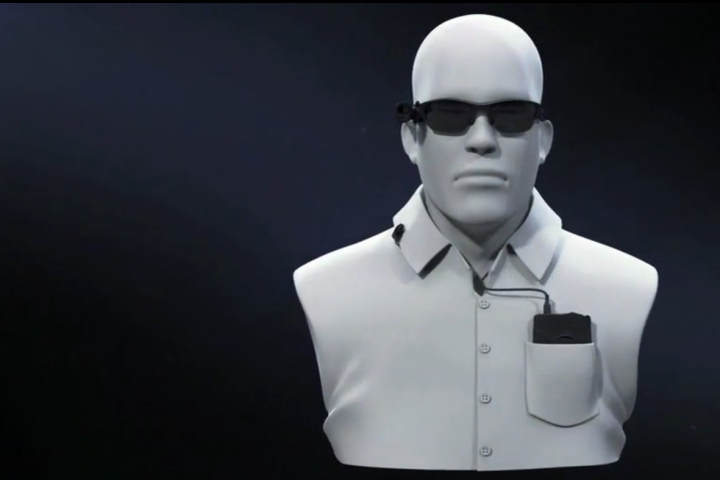
The NYPD announced that it will launch a $60,000 pilot program to distribute a total of 60 wearable video cameras to officers in five precincts and one police service area in the coming months. The initial rollout, which will begin this fall, will distribute six body cameras to each command, and officer participation is voluntary.
Related: Traffic violators beware! Dubai police will test out Google Glass to stop you in your tracks
The program will test cameras from two companies: a one-piece camera from Vievu that’s the size of a pager and can be worn on the front of an officer’s shirt; and a two-piece device from Taser International, which has a small camera that can be mounted on an officer’s head, collar or glasses, and a separate controller pack.
“Having patrol officers wear body cameras during this pilot demonstrates our commitment to transparency while it will also allow us to review its effectiveness with the intention of expanding the program,” according to Commissioner William J. Bratton. He compares this pilot program to the distribution of police radios decades ago.

The Metropolitan Police Department in Washington, D.C.; the Portland Police Department; and the Tampa Police Department are among the others with plans to distribute body cameras to their officers.
The Ferguson Police Department took less than a month to equip their officers with 50 body cameras, thanks to a donation from two security companies.
Michael D. White, a professor in the School of Criminology and Criminal Justice at Arizona State University and associate director of ASU’s Center for Violence Prevention and Community Safety, recently authored a report titled “Police Officer Body-Worn Cameras: Assessing the Evidence.” In it, he concludes that there isn’t enough evidence to draw a definitive recommendation, as questions about citizen attitudes toward body cameras and privacy implications, among many others, remain unanswered.
However, White notes that the use of body-worn cameras may have a “potential civilizing effect.”




